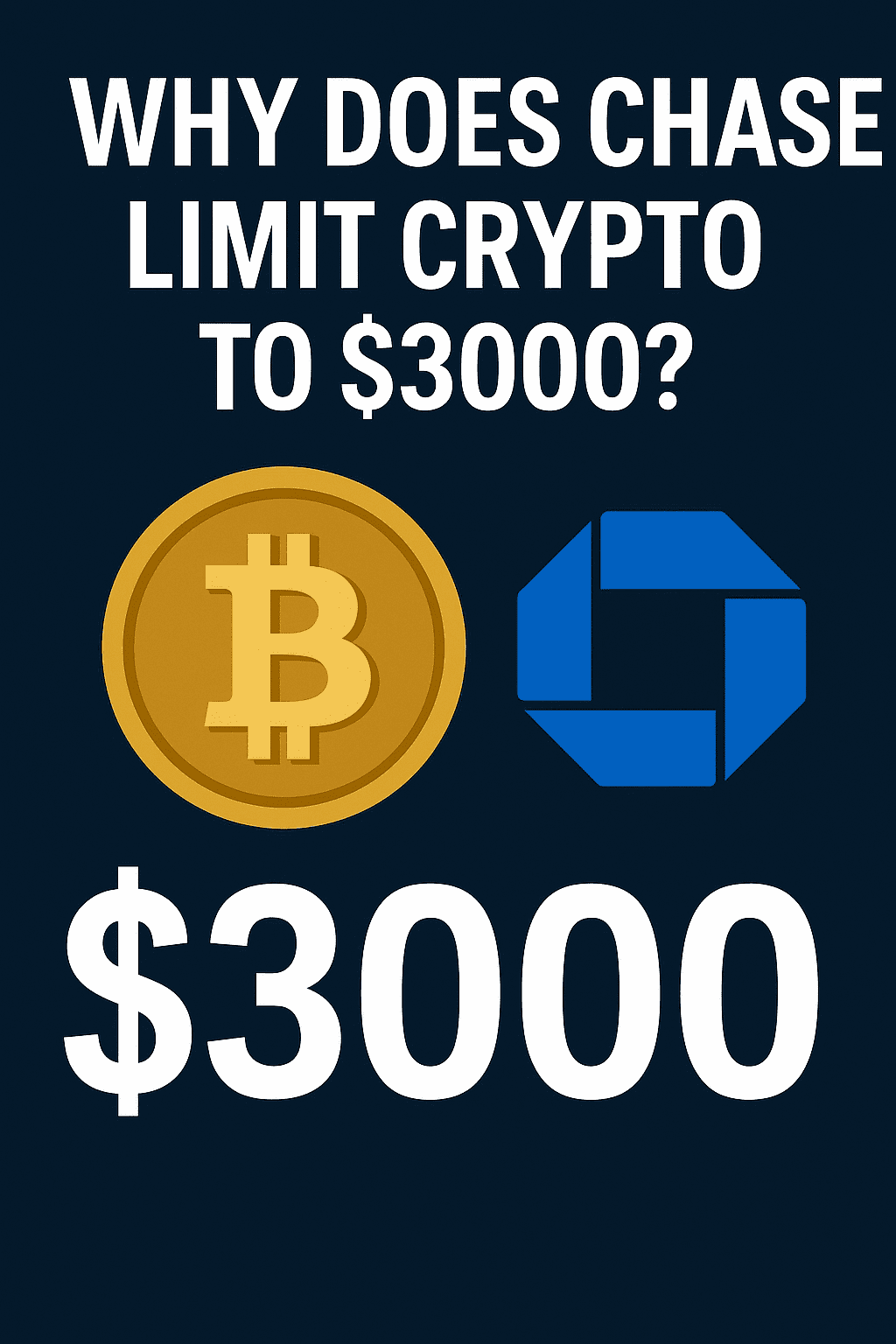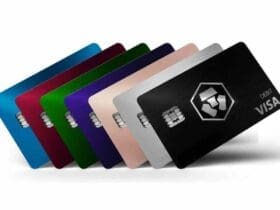Several Chase customers expressed confusion about the $3000 limit on cryptocurrency purchases. However, this number tends to be misunderstood—the limit exists because Chase UK has banned all crypto transactions due to increased fraud, while Chase US is expanding access under a new partnership with Coinbase.
These regional differences explain why some transactions may be restricted, and they show Chase’s concern about fraud and crypto regulation.
What is Chase Bank’s?
Chase Bank, or JPMorgan Chase Bank, N.A., is one of the largest consumer and commercial banks in the United States, within and under the umbrella of JPMorgan Chase & Co.
Chase offers a more consumer-centric approach to many of its services, which include checking and savings accounts, credit cards, personal loans, and mortgages, as well as business banking and wealth management for the more affluent.

Chase is recognized for its more robust digital banking services and has a global reach, which is complemented by its thousands of branches and ATMs.
Chase offers traditional financial products and has decent and regulated access to cryptocurrencie,s with measures like a $3000 purchase cap on crypto to mitigate risks and protect the customer from fraud or a volatile market.
Why Does Chase Limit Crypto to $3000?
Chase does not universally implement a $3000 limit on crypto. The confusion is probably due to the differences in policies between the UK and the U.S. In 2023, Chase UK stopped allowing crypto-related payments through the Chase app, debit cards, and bank transfers because of the increase in crypto scams and fraud. The restriction was an effort to protect customers from severe financial losses.

Chase US, on the other hand, is increasing access to crypto through a new partnership with Coinbase. Starting Fall 2025, US customers will be able to use Chase credit cards to purchase crypto on Coinbase.
Chase UK’s Ban
In late 2023, Chase UK officially banned crypto-related transactions on its mobile app, as well as through debit cards and bank transfers. This decision was prompted by a sharp rise in crypto scams and fraudulent activity, with the primary goal of protecting UK customers from losing substantial sums of money to fraudsters.
Chase US Operations and Coinbase Partnership
In contrast, Chase’s U.S. operations are taking steps to expand crypto access through a strategic partnership with Coinbase. Beginning in Fall 2025, U.S. customers will be able to use their Chase credit cards to purchase cryptocurrency directly on the Coinbase platform.
Furthermore, starting in 2026, customers will have the ability to link their bank accounts to Coinbase wallets and transfer Chase Ultimate Rewards points to their Coinbase accounts, offering new ways to use rewards and manage digital assets securely.
Differences in Policies Between the UK and the US
Chase UK and US crypto policies are completely different. The $3000 limit in the US is not a blanket policy for Chase. This may stem from the misunderstanding that the UK’s crypto blanket ban is the default for every region.
This unregulated crypto limit is almost like a Chase UK policy. As US Chase is trying to improve access to crypto in a regulated, safe manner, Chase UK is trying to put policies in place to protect customers.
Regulatory Compliance and Chase’s Crypto Limits
Chase limits some crypto transactions for various reasons, including regulatory compliance. American banks, including Chase, must comply with heavy regulations, which include Anti-Money Laundering (AML) laws, Know Your Customer (KYC) laws, and Counter-Terrorist Financing (CTF) laws.
These require banks to surveil transactions for suspicious activities, verify the source of funds, and facilitate the abuse of banking channels for illicit purposes. Chase probably perceives cryptocurrencies as a major risk with their regulatory framework due to their decentralized and non-traditional nature.
This is the reason Chase minimizes its losses with crypto purchases as it finely manages compliance with regulatory risk. This reduces exposure to fraud and ensures sufficient compliance with Federal laws.
Risk Management & Fraud Prevention
Chase has put in place the controls, like the reported limit of $3000 on purchases of crypto to enhance their risk and fraud management initiatives. Cryptocurrencies pose a significant risk owing to their volatility and susceptibility to fraud, scams, phishing attacks, and fraudulent attempts.
Because of these transactional caps, Chase can limit their customers’ exposure to sudden loss in the market, and customers dispute losses on chargebacks on fraudulent transactions.
Furthermore, smaller transactional caps limit the exposure of bad actors using Chase accounts to launder money and commit large-scale fraud.
These controls also permit the fraud detection systems of the bank to occult suspicious activity more effectively. Chase’s access to crypto in the financial ecosystem while maintaining financial risk safety on their customers is commendable.
Security Concerns – Chase’s Crypto Limits
Chase puts limits on how much cryptocurrency customers can buy, like the $3000 cap. Chase does this to mitigate customer risk. Since cryptocurrencies are digital currencies that can be transferred between customers and hacked, Chase limits how much can be bought to prevent large-scale unauthorized withdrawals.
Scam withdrawals are much harder to detect. Because Chase uses a blockchain, money transfers are irreversible like debit withdrawals. Chase believes that limited cap money withdrawals mitigate the risk of loss due to scams or unauthorized withdrawals. Protection of customer money and loss of money to scams is prioritized by Chase.
Comparison with Other Banks
Credit Card Purchases & Restrictions
Chase generally prohibits using credit cards for buying cryptocurrencies, citing credit risk and fraud. Other U.S. banks like Capital One and Citi have similar restrictions: many block crypto purchases via credit cards, or apply strict limits or additional checks.
Debit Cards & Bank Transfers
Chase often allows customers to use debit cards or bank transfers (ACH or wire) to fund crypto exchange accounts, though with limitations or extra scrutiny.
In contrast, some banks are more restrictive: Chase UK announced a ban on crypto transactions via debit cards and bank transfers due to rising fraud losses.
Regional Differences
Chase’s policies vary by country. For example, in the U.K., Chase UK has banned crypto purchases via debit card or outgoing transfers starting October 2023. By contrast, many U.S. banks, including Chase in the U.S., are more permissive in allowing crypto-related transactions (via regulated exchanges, with verification), though still cautious.
Fraud and Customer Protection Emphasis
Chase, like many banks, puts strong emphasis on preventing crypto fraud. In the UK, the justification for halting transactions centered on the escalating rate of customer losses due to crypto scams.
Other banks, like NatWest, have also implemented similar strategies, introducing daily and monthly limits for their customers.
Transparency & Regulatory Oversight
As with all banks, Chase is subject to U.S. regulatory bodies, including the Fed, as well as FinCEN, and must comply with AML/KYC restrictions. Other large U.S. banks, including Bank of America, Wells Fargo, and Citibank, face the same requirements.
Thus, none of these institutions allows unrestricted crypto purchases, and all implement policies to minimize exposure.
Final Thoughts
Chase has imposed a $3,000 limit on cryptocurrency purchases, which shows that they understand how to give their clients access to buy crypto, while also making sure that they are minimizing the risks that the clients are facing.
Limiting purchases balances the risks Chase faces in the crypto market, while also meeting compliance expectations in the U.S. regarding anti-money laundering, know your customer regulations, fraud, scams, and market volatility.
This protects customers who are less experienced in crypto and protects the bank. Other banks are even more restrictive. Chase is cautious, not prohibiting customers altogether., Chase is not trying to limit access to crypto but is trying to promote participation in a responsible, safe, and regulated manner.
FAQ
Yes, some Chase customers report a $3000 cap on crypto purchases. While Chase hasn’t officially confirmed a universal policy, limits may apply based on card type, account history, or fraud-prevention measures.
Chase enforces limits to comply with regulations, prevent money laundering, reduce fraud risks, and protect customers from the volatility of cryptocurrencies.
No. In the U.S., customers face restrictions mainly through debit cards and bank transfers, while Chase UK has imposed stricter bans on crypto purchases due to rising scams.
Not directly. However, customers can fund accounts on crypto exchanges through linked bank transfers, ACH deposits, or by using crypto-friendly financial services that allow higher purchase amounts.













Got a Questions?
Find us on Socials or Contact us and we’ll get back to you as soon as possible.